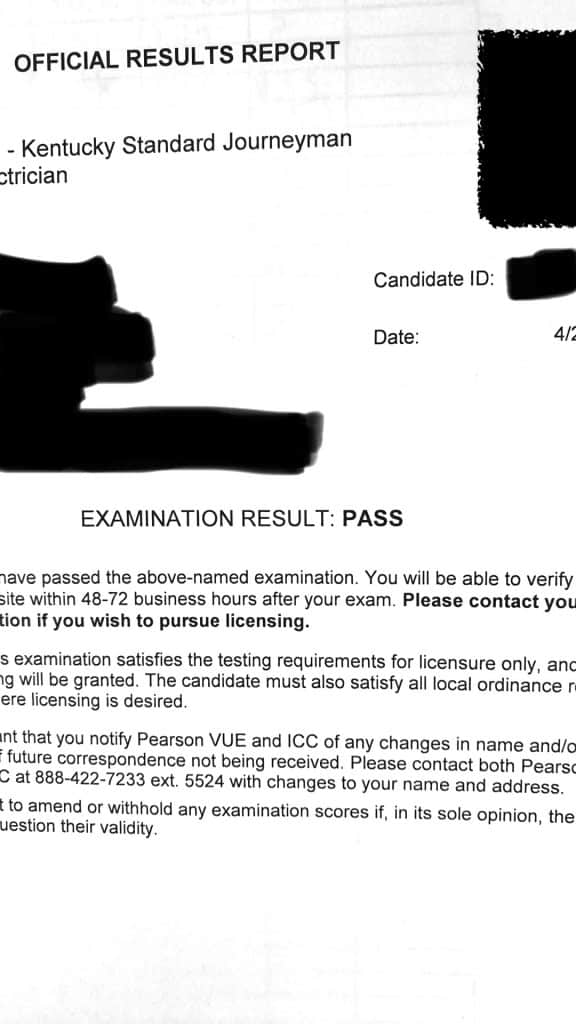Electrical Journeyman Practice Test
Hello, future Electrical Journeyman! If you’re reading this, you’re likely on the cusp of taking one of the most important exams in your electrical career—the Electrical Journeyman Test. This test is not just another hurdle; it’s your ticket to a world of greater responsibilities, opportunities, and yes, a higher paycheck. Here’s a quick, fact-filled rundown to kickstart your journey:
- Purpose: The Electrical Journeyman Test aims to evaluate your grasp of electrical theory, your practical skills, and your ability to adhere to the National Electrical Code (NEC). Passing this test is a critical milestone on your path from an apprentice to a licensed journeyman electrician.
- Skills Measured:
- Electrical Theory
- Practical Application
- NEC Compliance
- Safety Protocols
- Format: The test typically consists of a mix of multiple-choice questions and practical tasks. You’re likely to encounter around 80 to 100 questions, with the test duration ranging between 2 to 4 hours.
- NEC Editions: While the core of the test is standardized, the NEC edition it’s based on can vary by state. However, for the purpose of this guide, our sample questions and tips will be based on the NEC 2017 edition.
- State-Specific: Each state may have its own set of additional sections or unique requirements. Always check the specifics for your jurisdiction.
- Prerequisites: Generally, you’ll need to complete a set number of hours of on-the-job training and classroom instruction. The exact number varies by state but expect to clock in around 4,000 to 8,000 hours of training.
- Cost: The test fee can fluctuate between $30 to $75, depending on where you’re taking the test.
Ready to level up your career? This all-inclusive guide will walk you through every nook and cranny you need to explore to ace the Electrical Journeyman Test. Let’s plug in and get started!
Did you know?
Did you know that the Electrical Journeyman Test is often competency-based and divided into real-world job tasks? Successful test-takers usually excel in time management and are well-versed in their state’s relevant NEC edition. The test is commonly electronic, speeding up result processing, and a strong score can significantly boost your marketability to employers.
Navigation Pad
Question types explained
Results scale & interpretations
Frequently asked questions
Question Types Explained
The Electrical Journeyman Test is a multiple-choice exam that assesses a range of skills and knowledge essential for a journeyman electrician. While the test is standardized, the specific questions can vary by state and the NEC edition they are based on. Here’s an overview of the different types of questions you can expect:

- Electrical Theory Questions: These questions test your understanding of basic electrical concepts like Ohm’s Law, circuits, and electrical formulas. To excel in this section, you’ll need a strong grasp of foundational electrical theory.
- Code Compliance Questions: These questions are based on the National Electrical Code (NEC), and they assess your ability to interpret and apply electrical codes correctly. Familiarity with the NEC edition relevant to your state is crucial here.
- Practical Application Questions: Despite the test being multiple-choice, these questions simulate real-world scenarios where you have to apply your knowledge to solve problems or make decisions. Practical understanding of electrical installations, troubleshooting, and safety are key.
- Safety Protocol Questions: Safety is paramount in the electrical field. These questions evaluate your understanding of safety measures, procedures, and best practices. Knowledge of Personal Protective Equipment (PPE) and emergency protocols can be beneficial.
- State-Specific Questions: Some states may include questions that pertain to state-specific codes or regulations. Being aware of your state’s unique requirements will help you navigate this section.
- General Knowledge Questions: These questions may cover a broad range of topics, including tools, measurements, and basic electrical components. A well-rounded understanding of the electrical field will serve you well here.
- Electrical Calculations Questions: These questions assess your ability to perform various mathematical calculations related to electrical work, such as load calculations, voltage drops, and wire sizing. A strong grasp of electrical calculations is essential for effective and safe electrical installations.
iPREP: Concise. Focused. What you need.


